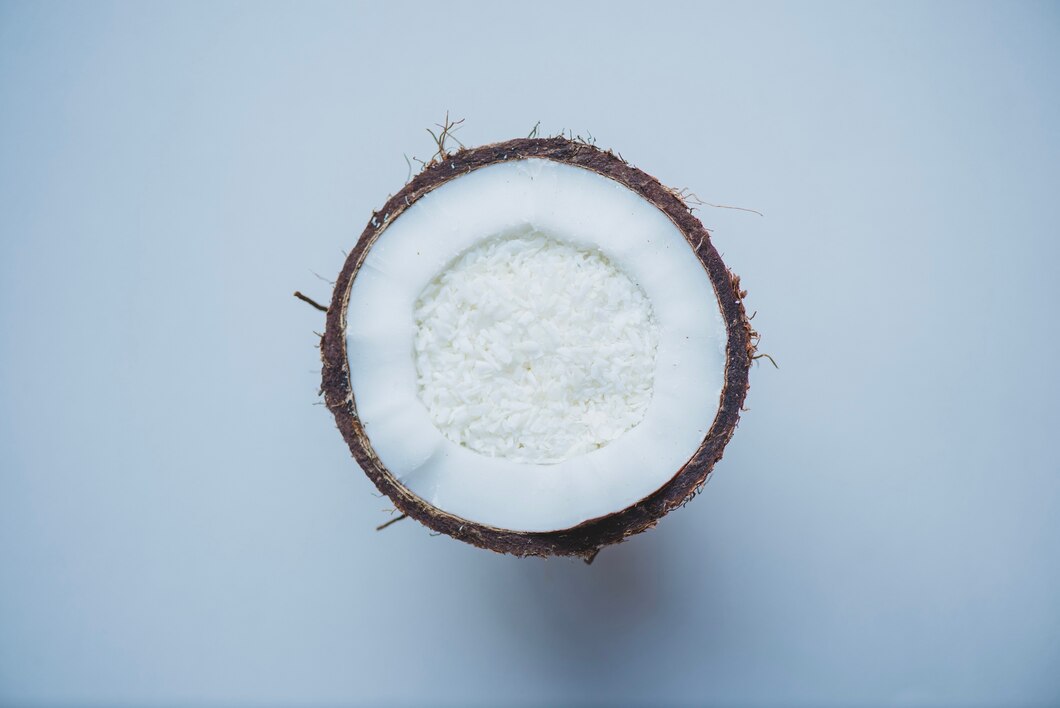Coconut flour can be used as a substitute for wheat flour in many recipes. Just substitute 10% – 15% of wheat flour with coconut flour, and you will get similar results while making the meal you’re preparing slightly healthier.
Coconut flour can go bad if it’s not stored properly. Due to its high nut oil content, it can become rancid once exposed to oxygen. To prevent this, store coconut flour in an airtight container in a cool, dark place.
How to Tell If Coconut Flour Has Gone Bad
Coconut flour generally has a sweet, nutty aroma and is ivory or light cream in color. However, if the texture, taste, aroma, or color of the coconut flour changes, it is a sign that the flour has gone bad.
If the flour is very clumpy, it is best to throw it out. Also, if the flour starts to develop an unpleasant smell, it is time to get rid of it. Coconut flour can develop a slightly bitter taste when it goes bad, so be on the lookout for that as well.
If the best-by-date on a package of coconut flour has passed, it is usually still safe to use the flour. Many people have used coconut flour past the best-by-date with no problems.
Expected Shelf Life of Coconut Flour
Coconut flour is a relatively new product on the market. It is not as common as wheat flour, and as such, it has not been studied as extensively. However, there is some research available on coconut flour and its shelf life.
Most research suggests that coconut flour will last for about two years when stored properly. The best way to store coconut flour is in an airtight container in a cool, dark place. Some brands of coconut flour claim that their product will last for up to three years when stored properly. However, it is always best to err on the side of caution and use the flour within two years.
Different Ways to Store Coconut Flour
Let’s go through different ways of storing coconut flour.
Pantry
The pantry is the most common place to store coconut flour since it’s dry and has a long shelf life. Be sure to keep your coconut flour in an airtight container, such as a mason jar, to prevent it from absorbing moisture or other aromas from your pantry.
If your pantry is particularly warm or humid, it’s best to store your coconut flour in the fridge or freezer to prevent it from going bad prematurely.
Refrigerator
Storing coconut flour in the fridge can help extend its shelf life, especially if your pantry is warm or humid. Be sure to keep the flour in an airtight container to prevent it from absorbing moisture or other aromas from your fridge.
Freezer
You can also store coconut flour in the freezer to help extend its shelf life. Be sure to keep the flour in an airtight container to prevent it from absorbing moisture or other aromas from your freezer.
Conclusion
Coconut flour is a healthy, gluten-free alternative to traditional wheat flour. It’s high in fiber and low in carbs, making it a great choice for those on a low-carb or ketogenic diet. Coconut flour can be used in various recipes, including cakes, cookies, pancakes, and breads.
When stored properly, coconut flour will last for up to two years. The best way to store coconut flour is in an airtight container in a cool, dark place, such as the pantry, fridge, or freezer.
If you want to experience the many health benefits of coconut protein powder, Coco House has a range of options available online. From organic coconut sugar to coconut flour, our collection of coconut products is sure to please everyone from the health fanatic to the coconut lover. Shop now and be part of our tree-to-table movement!







